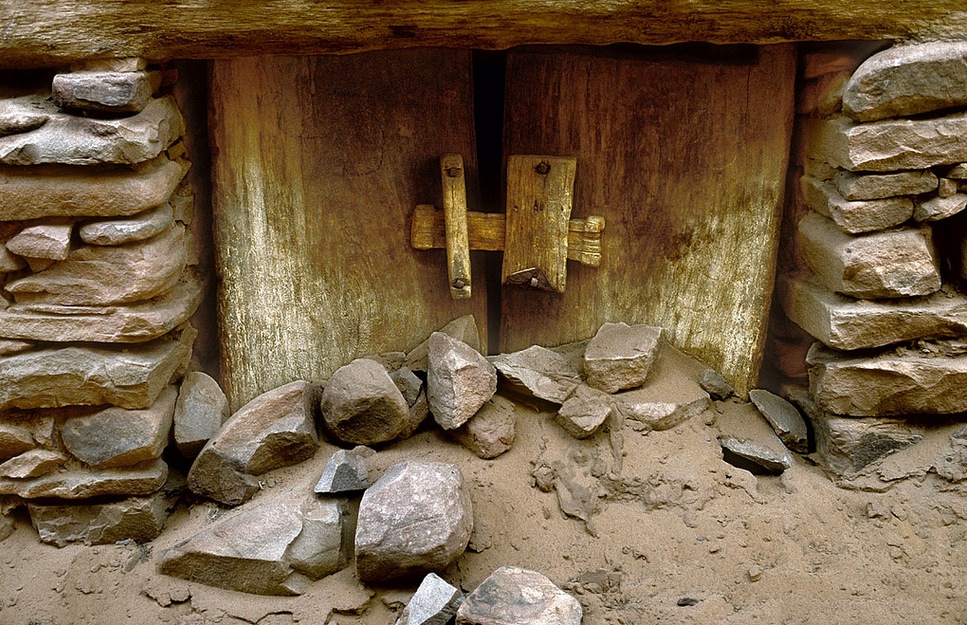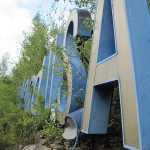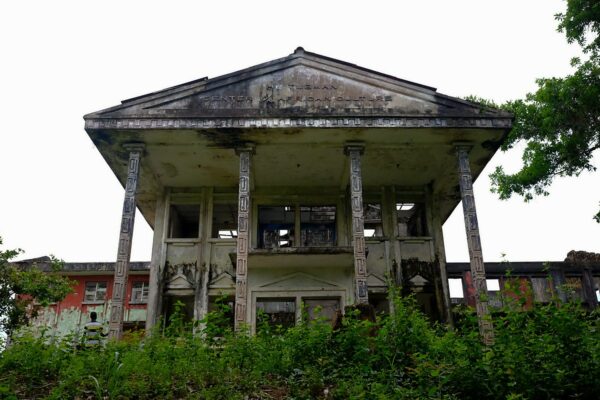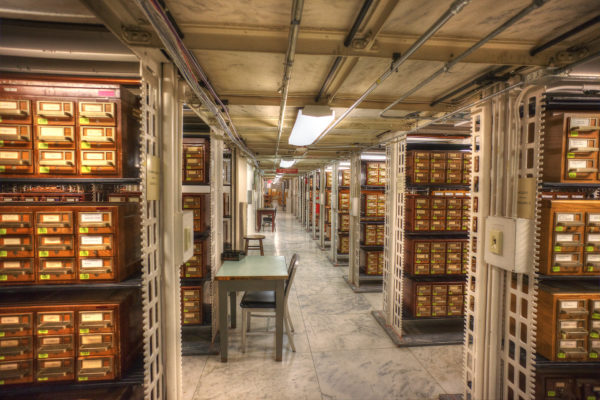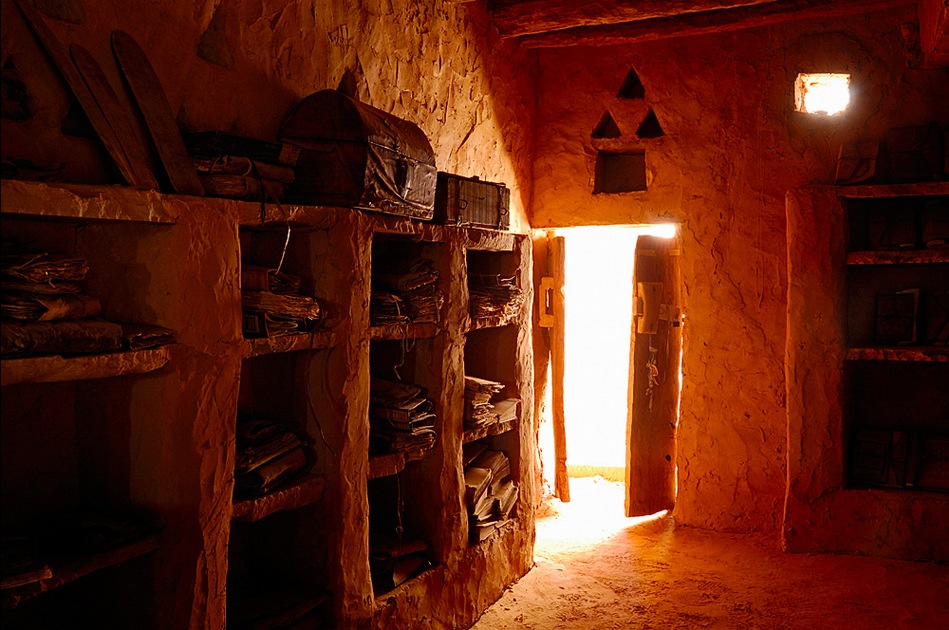
The sands of the Sahara have all but swallowed Chinguetti, a near ghost town found at the end of a harsh desert road in Mauritania, West Africa. Its majority of abandoned houses are open to the elements, lost to the dunes of a desert aggressively expanding southward at a rate of 30 miles per year. While predictions suggest this isolated town will be buried without a trace within generations, Chinguetti is probably the last place on Earth you would look for a library of rare books.
(c) lead image by Martin Hülle
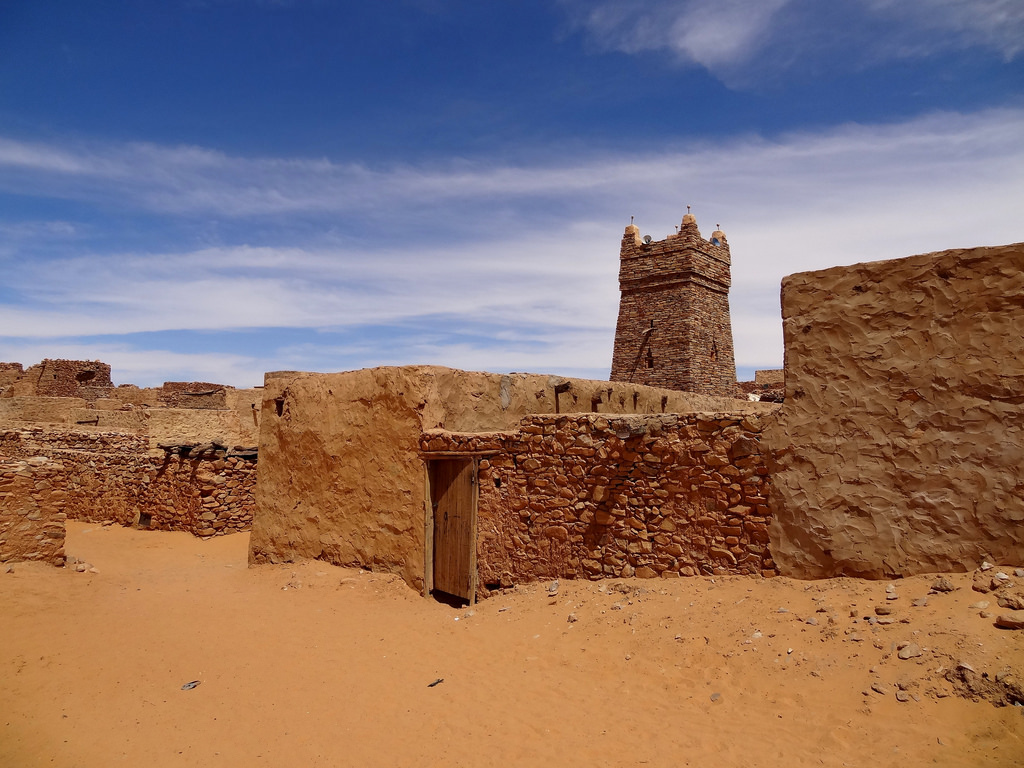
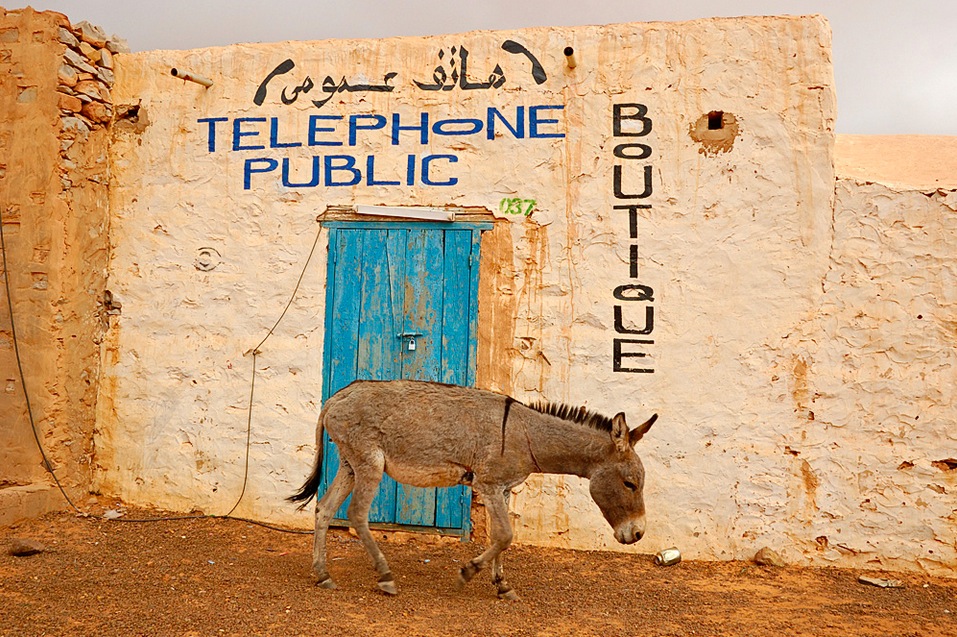
(c) Martin Hülle
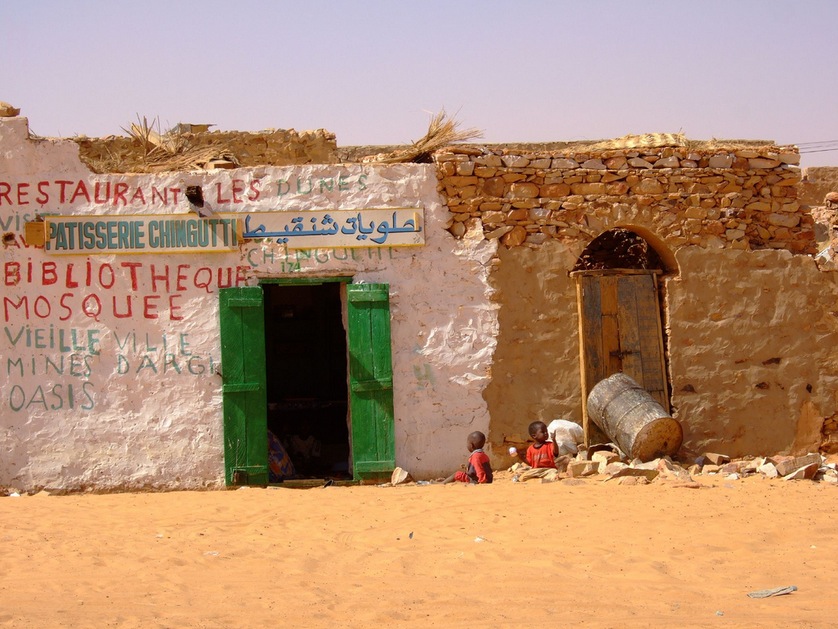
This was once a prosperous medieval metropolis, home to 20,000 residents and a centre for scholars of science, religion, law, medicine, mathematics and astronomy in West Africa. A principal gathering place for pilgrims on their way to Mecca, it even became known as a holy city in its own right and over time, it was recognised as the seventh holy city of Islam, the “City of Libraries”.
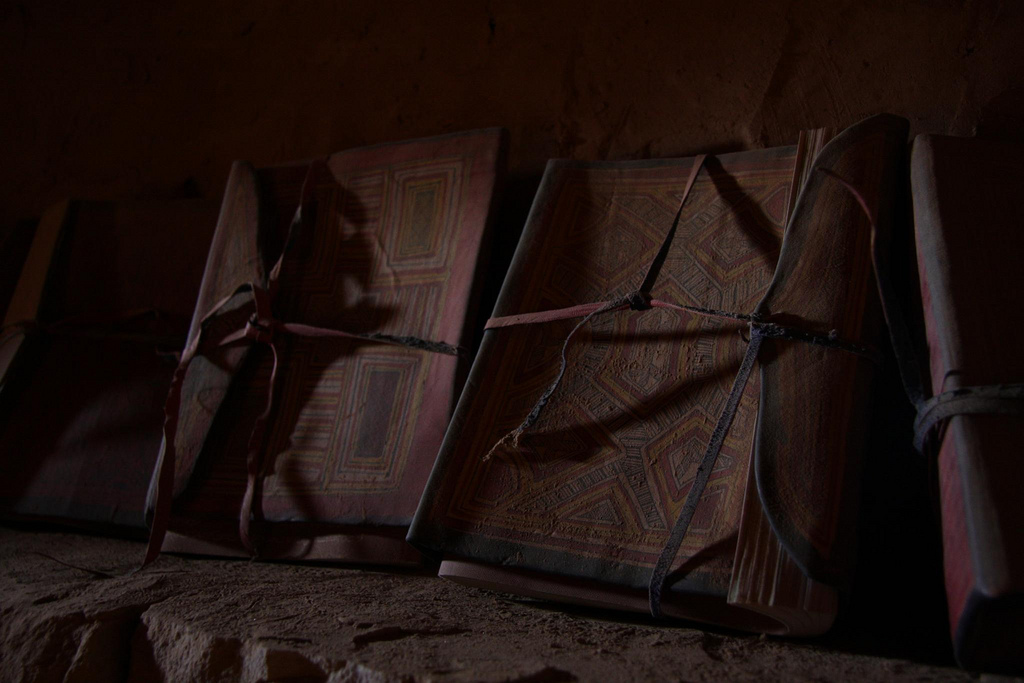
Today all that remains of the scholarly and holy city is a collection of deserted streets and mud houses left behind by the Moorish Empire with a few signs scrawled above doorways…
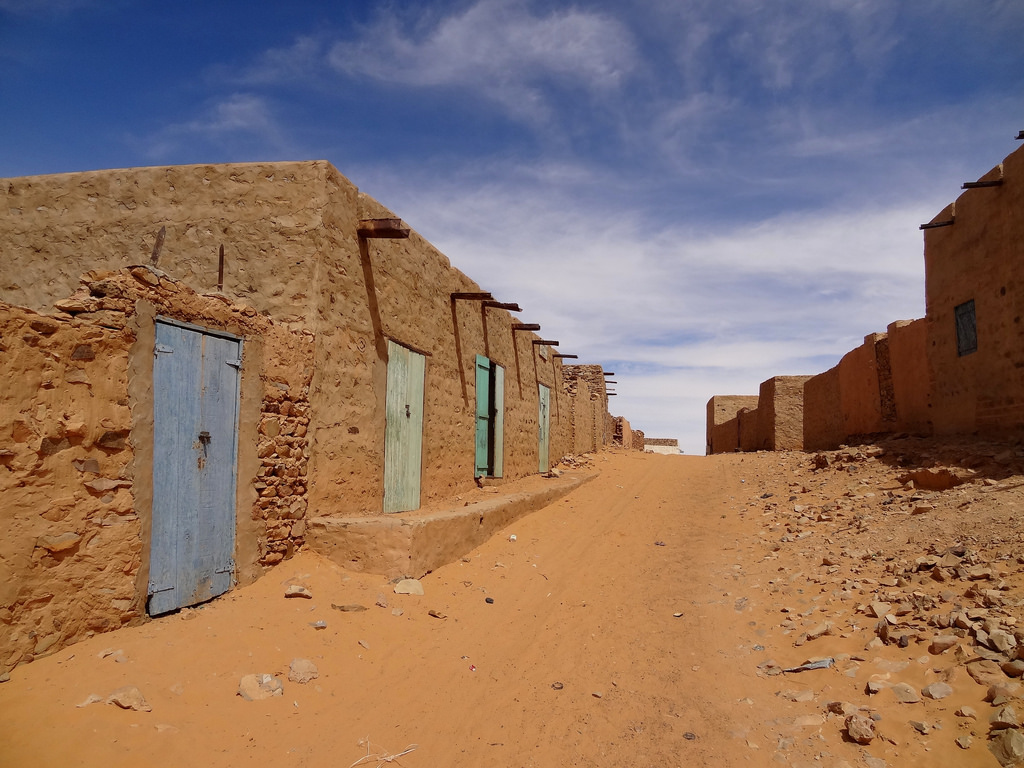
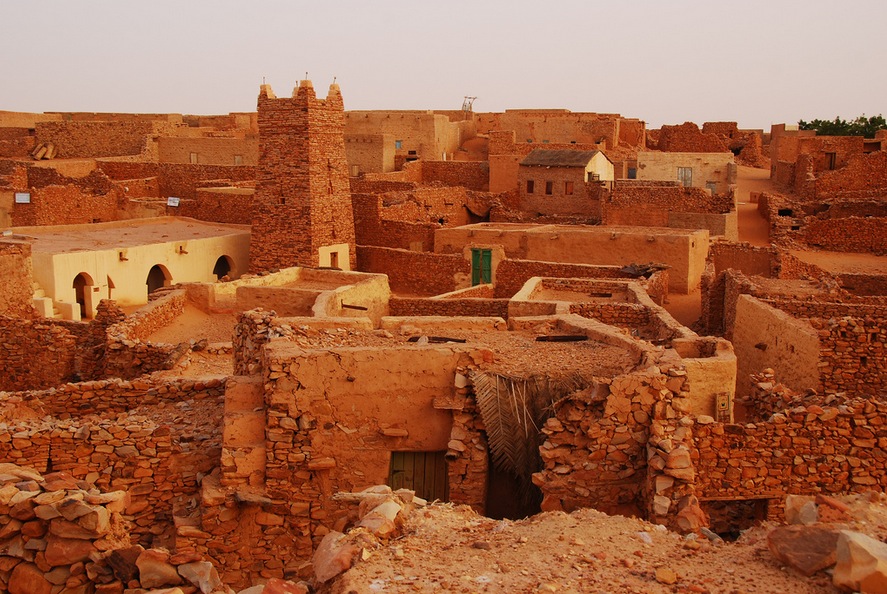
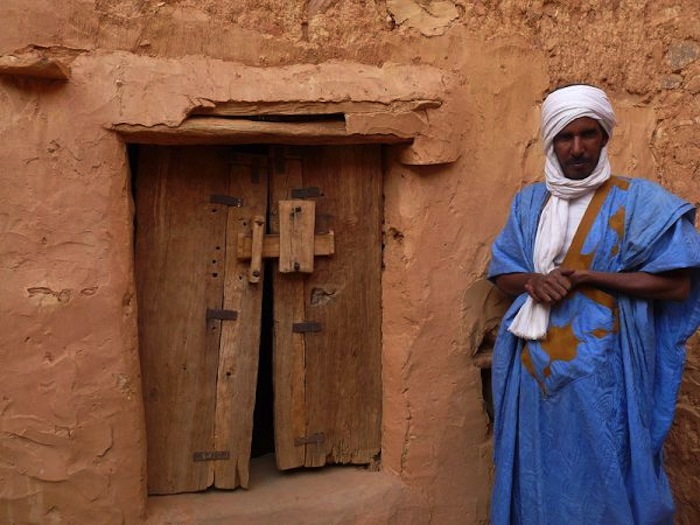
But against all odds, behind these walls sleep 6,000 books, some kept (for the most part) in tact since the 9th century in the dry desert air…
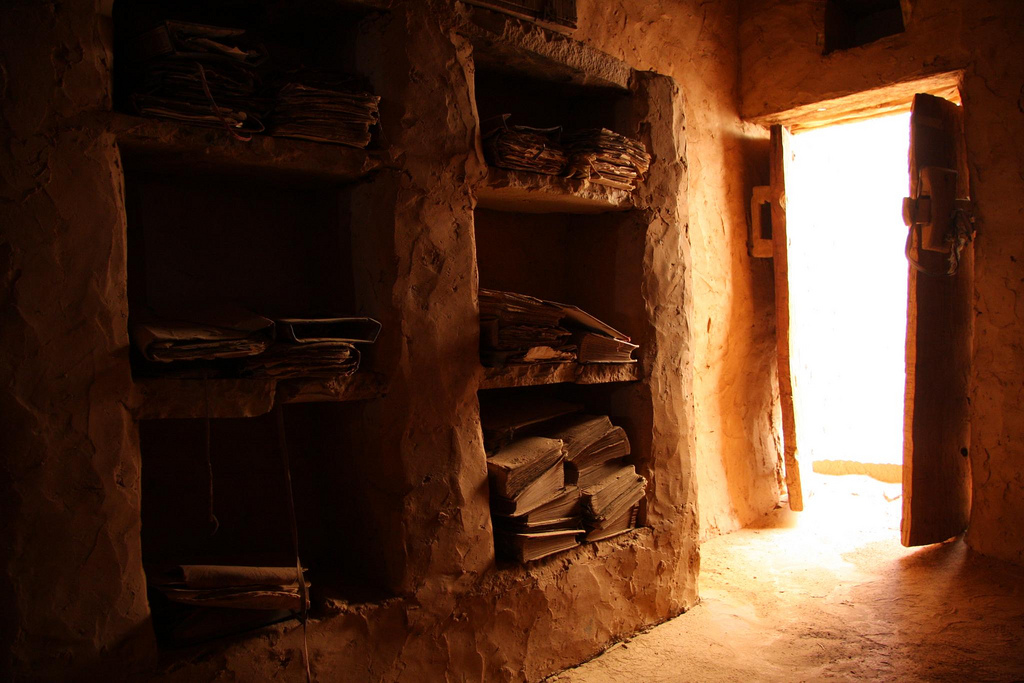
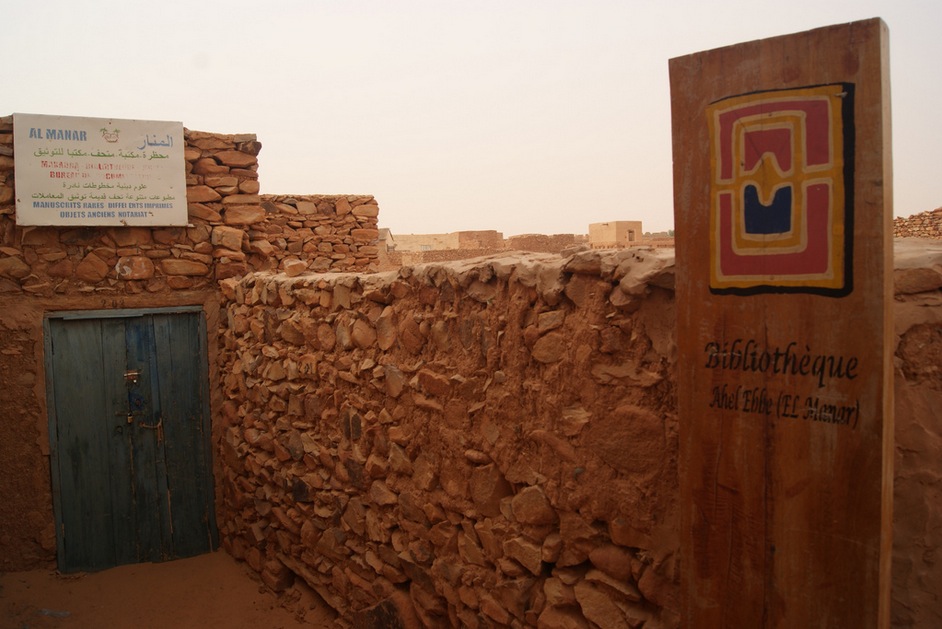
As recently as the 1950s, Chinguetti was home to an impressive thirty family-owned libraries, but severe drought saw the town’s residents disappear, taking their books passed down from generations with them. Today there remains less than ten libraries in the old town, catering to scholars that occasionally visit the isolated town, but mostly to tourists who pass through to see the priceless texts and experience a traditional nomadic hospitality of the Mauritanian desert.
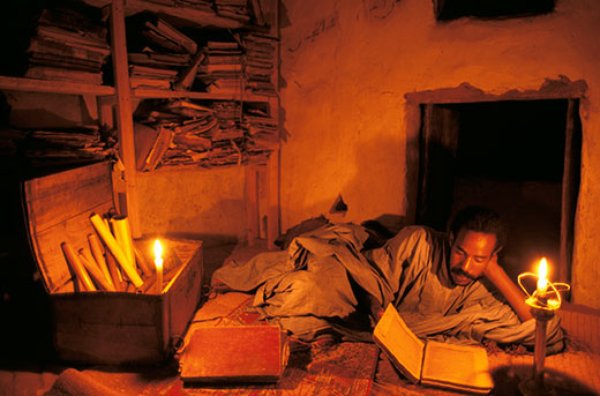
Among some of the world’s most important Islamic manuscripts on religion, science and literature, the books are written on gazelle skin and protected by goatskin. The wealthiest library, which houses the most important collection in the old quarter and is considered one of the oldest libraries of Islam, is owned by the Mohammed Habbot family. The 1,600 books in this collection are stored in iron cabinets and despite its unlikely location, the library somewhat resembles a traditional library, with administrative filing cabinets and reading desks.
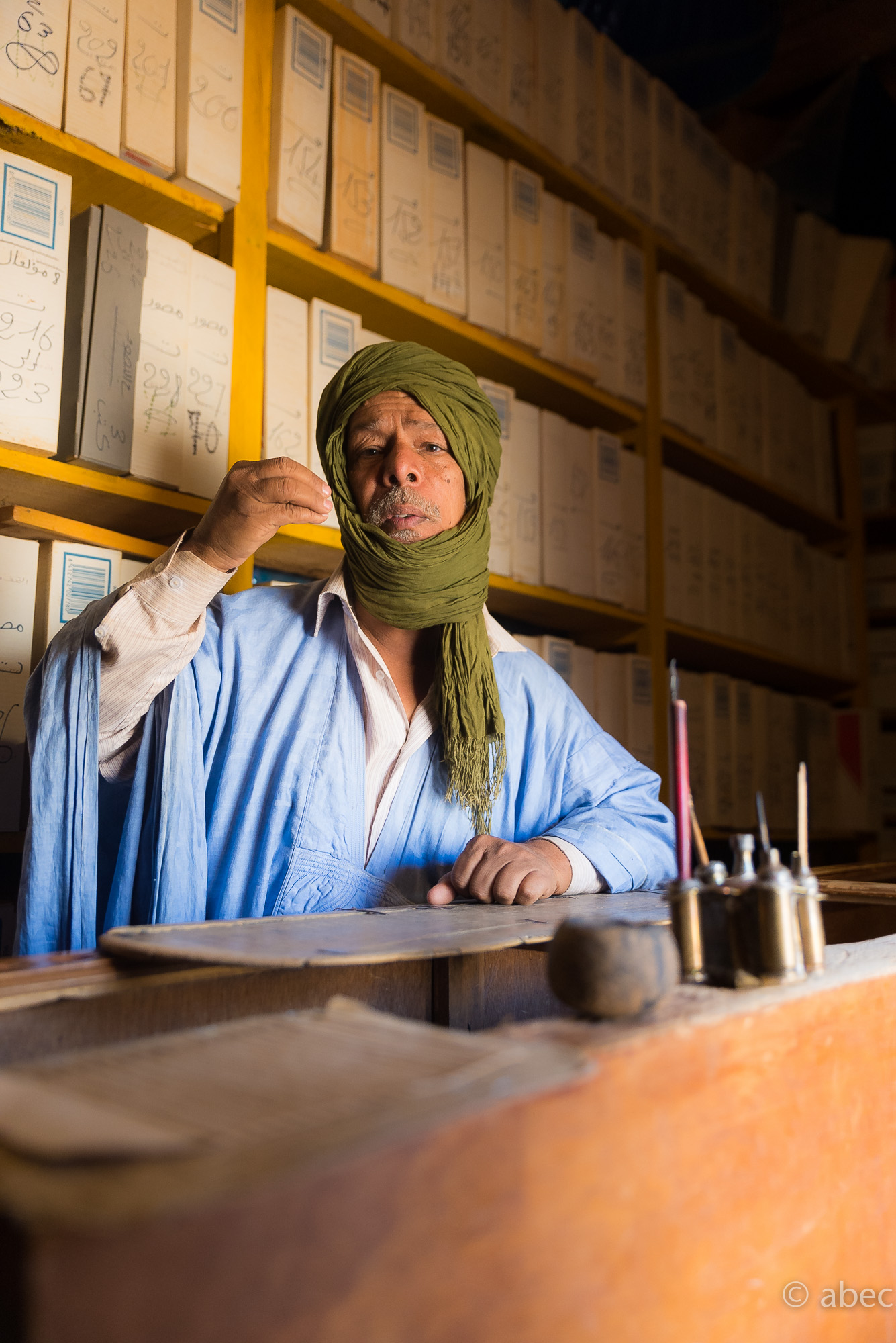
The other handful of libraries still surviving in Chinguetti however are very much time capsules of the medieval era in which they were first built, storing the ancient books in simple cardboard binders on open shelving, vulnerable to the elements. Just about the worst environment for storing ancient books, Chinguetti is an unfortunate victim of climate change that is causing seasonal flash flooding and severe erosion as well as increased desertification and frequent sandstorms.
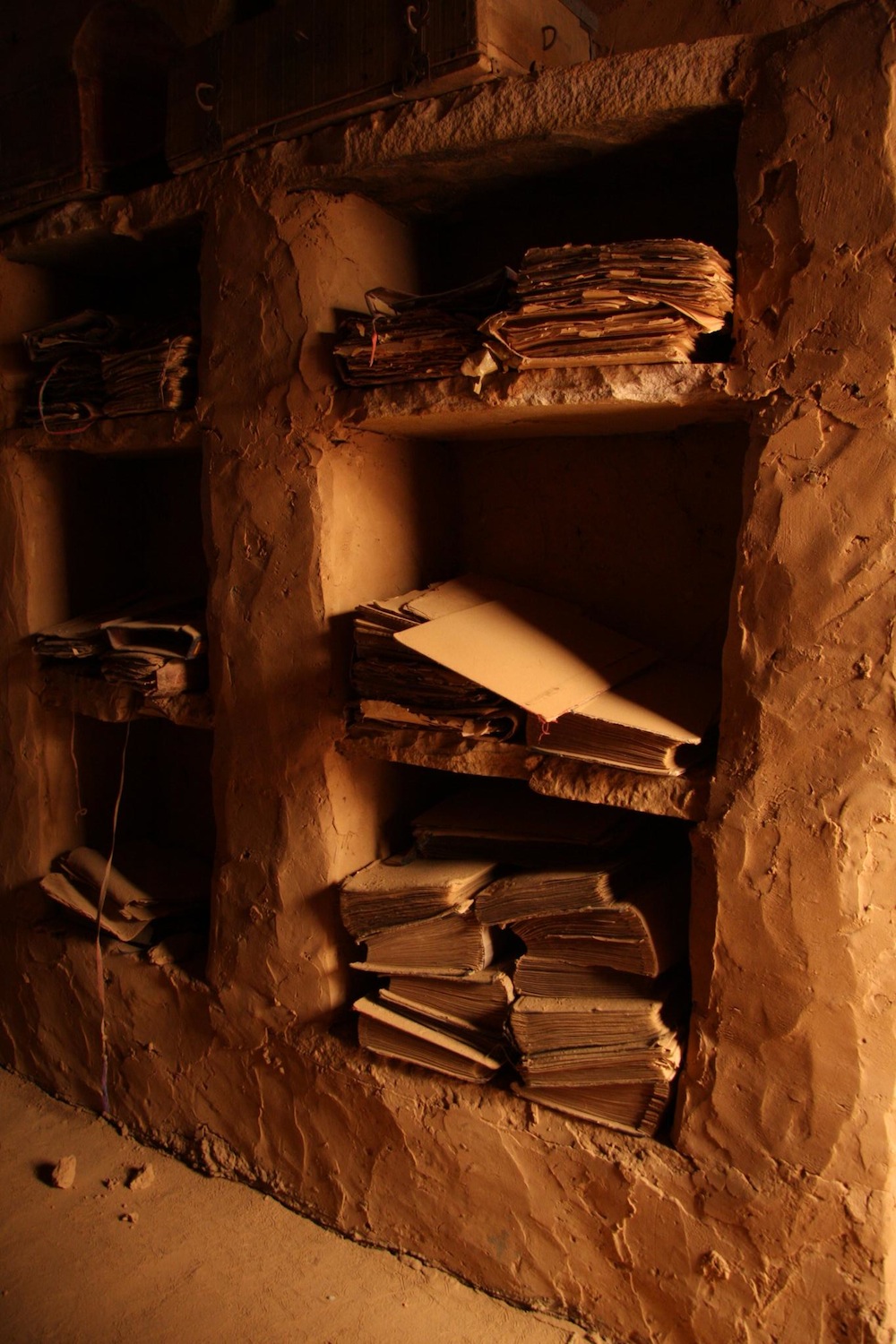
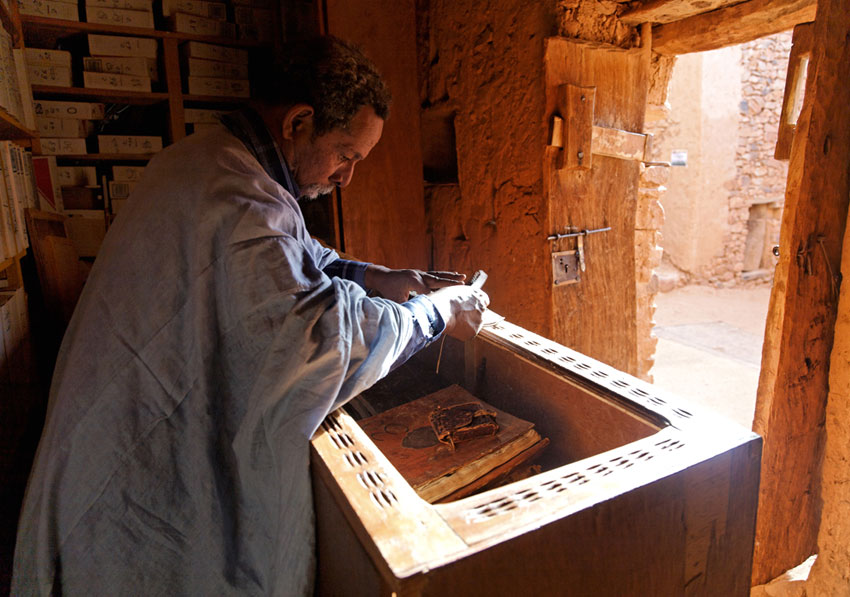
The best hope of preventing the deterioration of these priceless books would be to limit their contact with light and dust. But for the few remaining residents of Chinguetti, tourism is their livelihood and the nomadic librarians are obliged to expose the ancient texts to show to passing tourists, spoiling them a little more everyday.
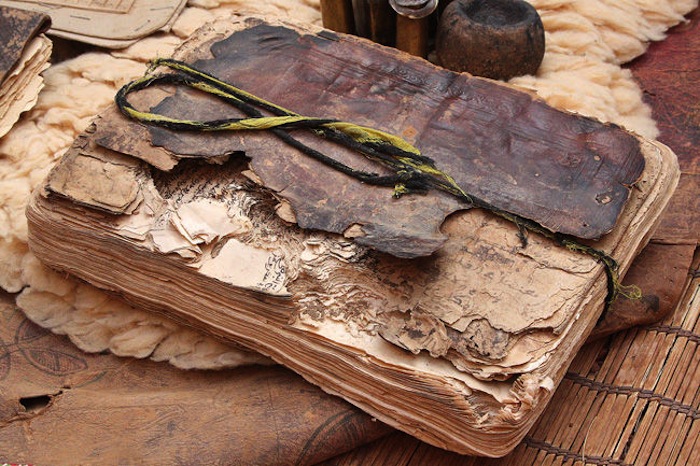
Recognising the endangered status of the city, UNESCO has designated Chinguetti a World Heritage Site. Cave paintings from the Stone Age found near Chinguetti, depict the region as a lush grassland where wildlife once flourished. However, delaying the effects of climate change would require a sustained commitment using highly advanced technology, and with the current political turmoil plaguing West Africa, the fate of Chinguetti’s libraries looks about as promising as that of our own independent bookshops.
